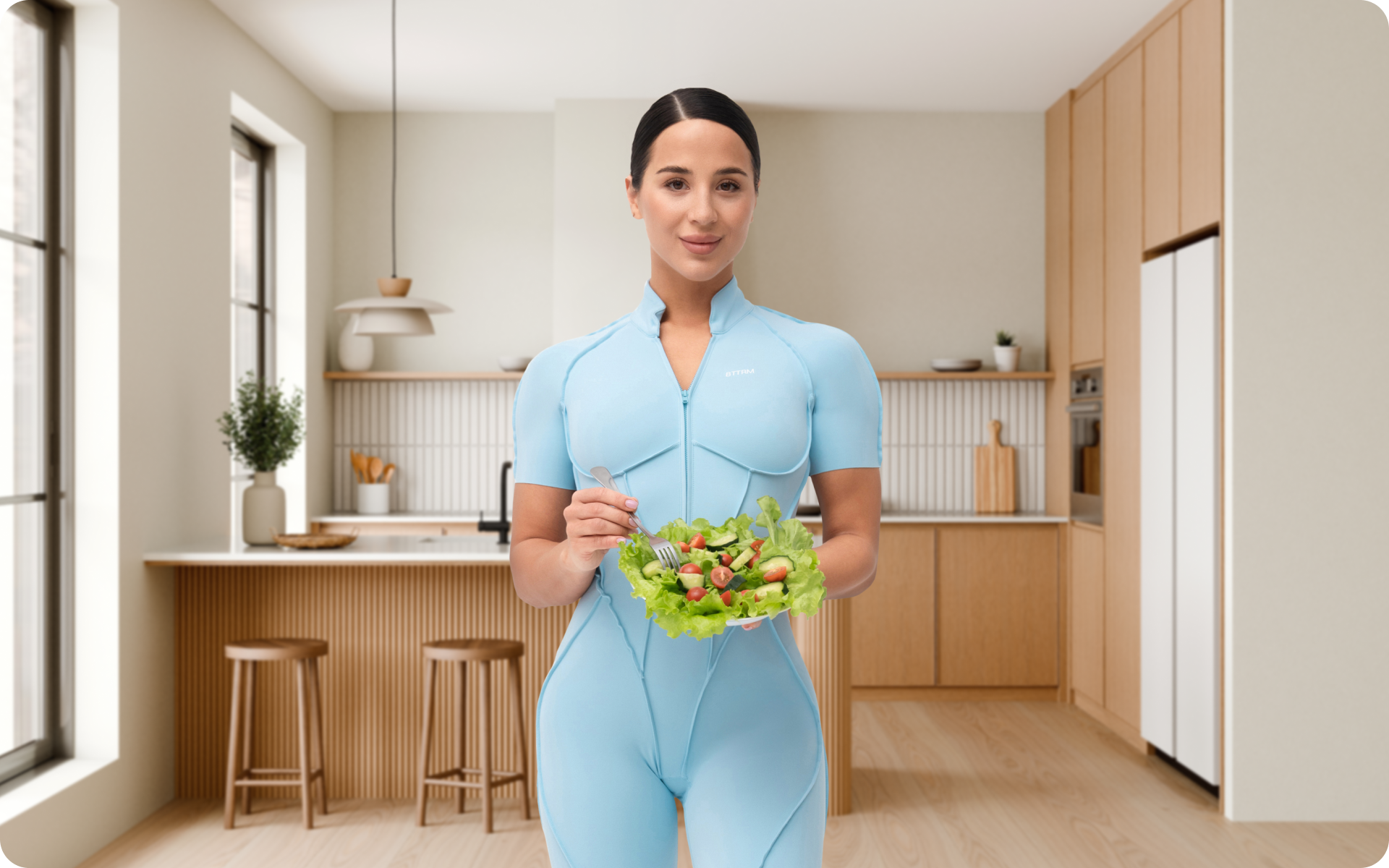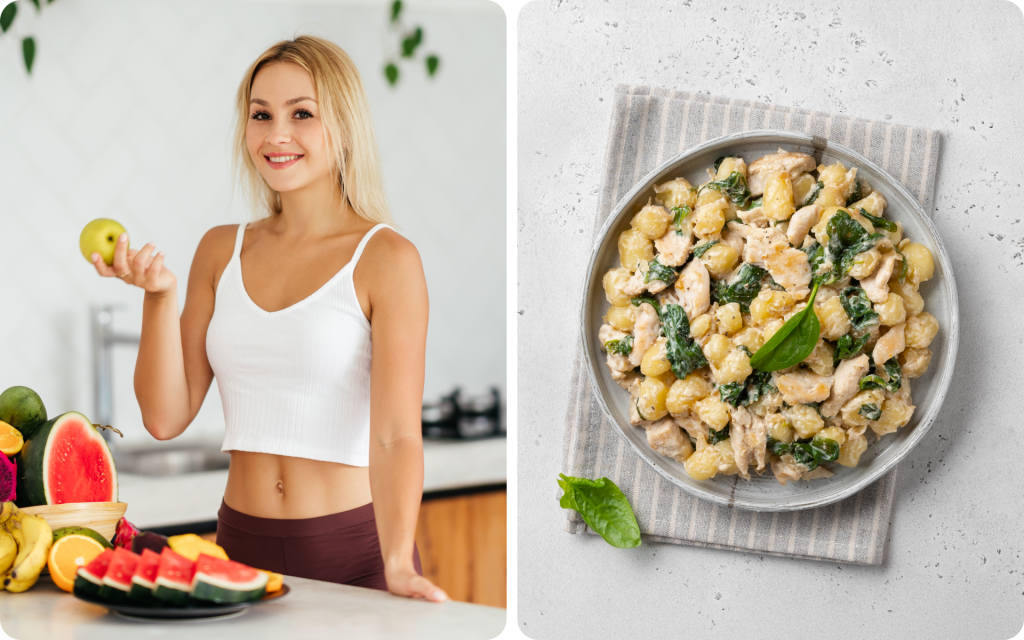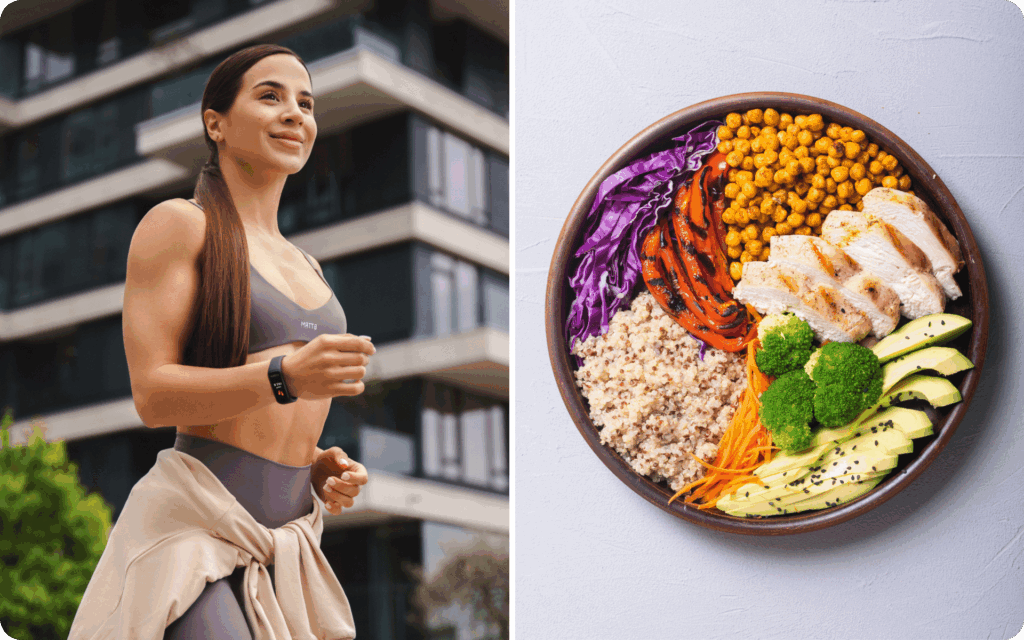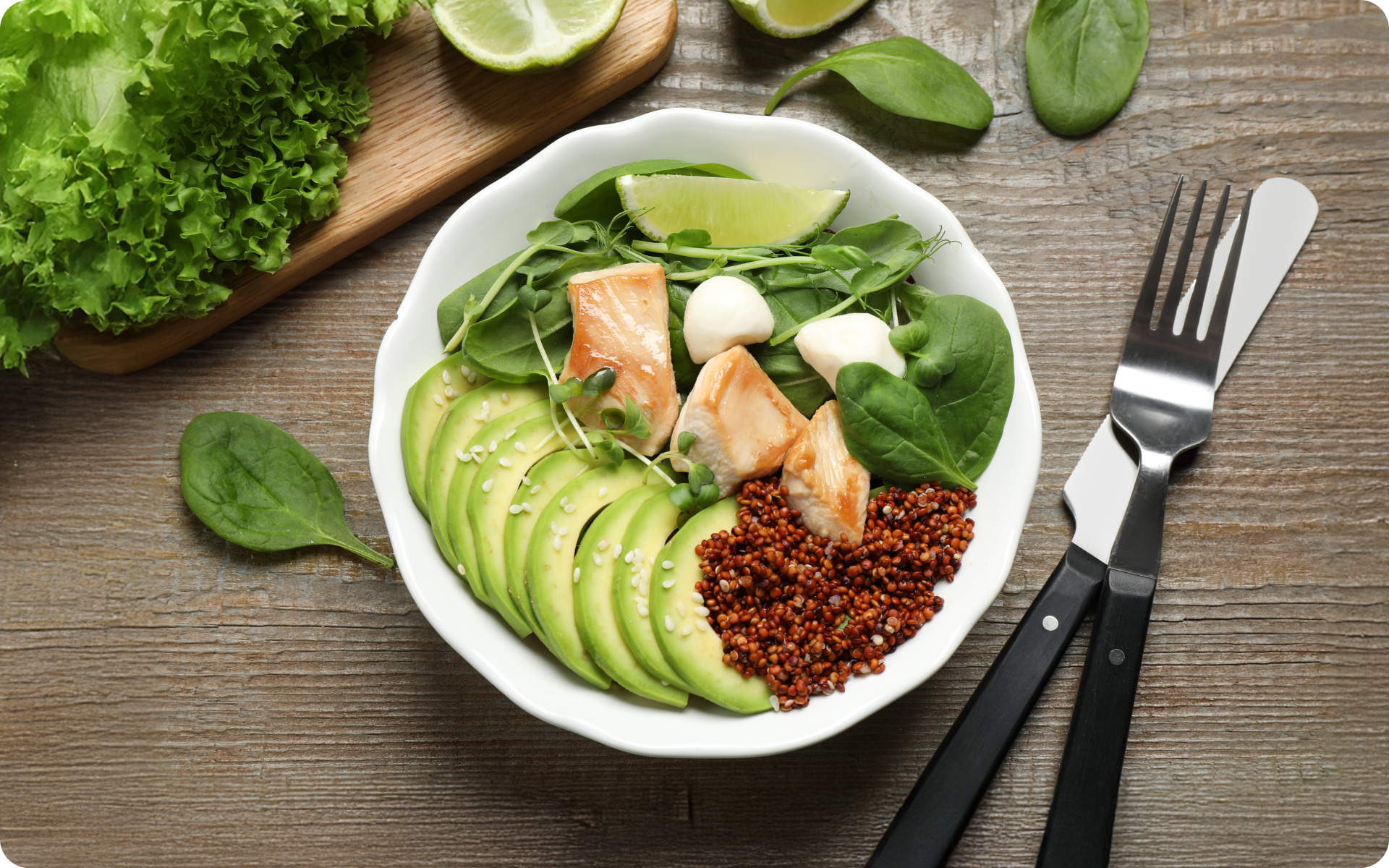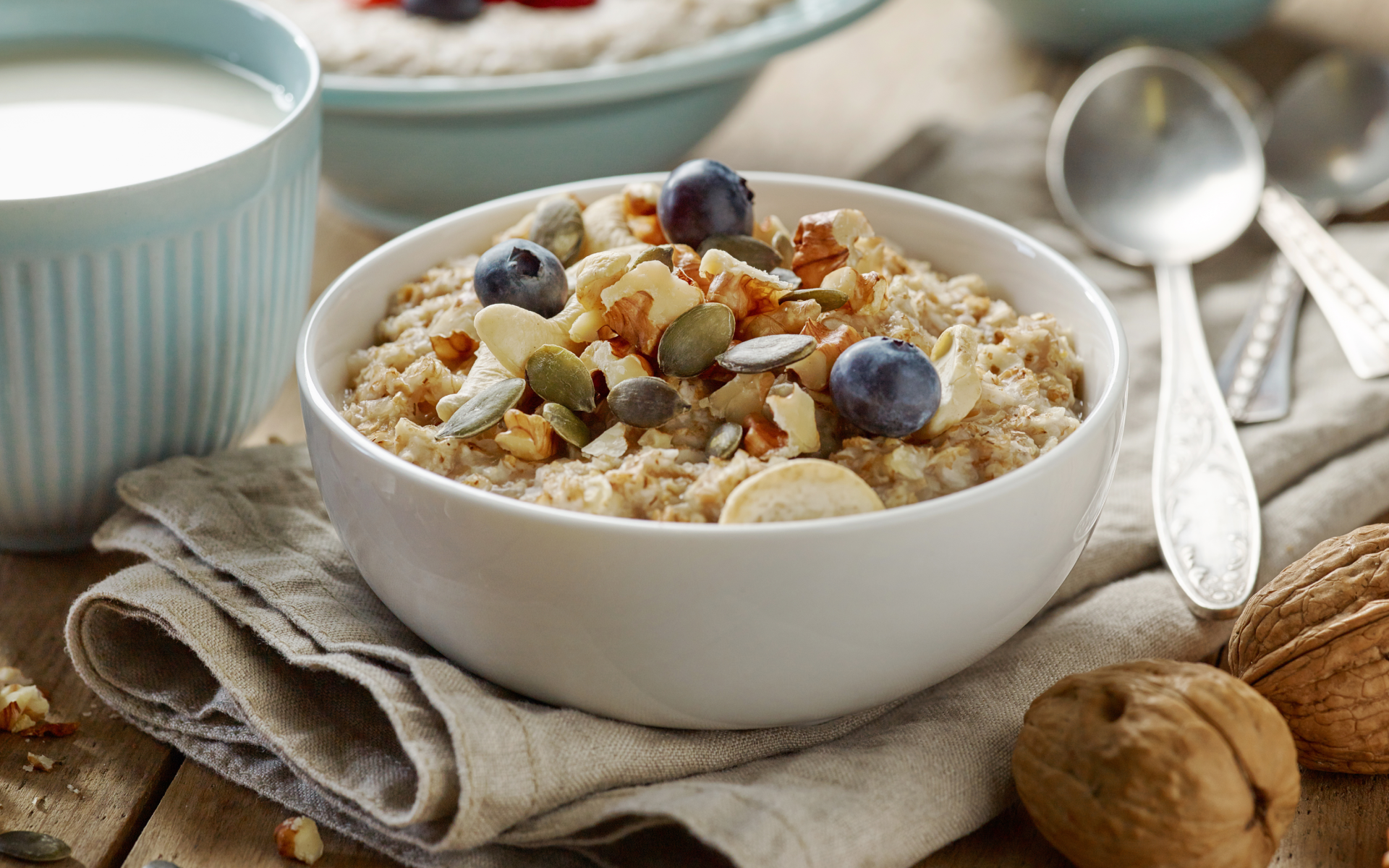When you live alone, meal planning can be a difficult task.
While cooking for one person might sound easy, it can be challenging due to factors such as managing smaller quantities of ingredients, minimizing food waste, and maintaining variety to avoid getting bored with the same meals.
Even when you search online, it is rare to find examples of meal plans for one person, as most options cater to a two-person household or more. The search is even harder if you are looking for a budget-friendly option.
In today’s article, we will provide you with tips on creating a simple meal plan for one person that is not healthy, sustainable, and budget-friendly.
What Is A Budget-Friendly Meal Plan For One Person?
A meal plan for one person on a budget is a well-thought-out and designed eating plan that helps an individual eat healthy and nutritious meals without spending a lot of money. The goal of such a plan is to maximize nutrition while minimizing cost and waste.
A budget-friendly, one-person meal plan often includes essential tips like:
- Using affordable and easy-to-find ingredients
- Food or meal prepping, which prevents impulse buying
- Batch cooking and freezing meals, which saves time and money
- Encouraging the reuse of ingredients to make new and delicious dishes
Whether you’re a workout beast or just a beginner making your first foray into the world of fitness and dieting – BetterMe has a lot to offer to both newbies and experts! Install the app and experience the versatility first-hand!
What Are The Key Benefits Of Following A Meal Plan?
Some advantages of choosing to meal plan for one person can include:
- Reduces Stress At Meal Times
A common funny meme that you may have come across on social media states, ‘who knew that one of the hardest parts of being an adult is figuring out what to cook for dinner every night for the rest of your life’.
Constantly having to decide what to eat easily leads to fatigue and ordering in, which is not very budget-friendly. However, when you meal plan, you avoid having to stress about this since you already have ready-made food in the fridge, and all you have to do is reheat and go about your day/evening.
- Can Help You Eat Healthier
According to one study published in the International Journal of Behavioral Nutrition and Physical Activity in early 2017, researchers found that when people followed a meal plan, not only did they consume a higher quality diet, but their diet also had a rich variety of foods (1).
The researchers stated that compared to foods prepared outside the home, those made at home tend to be of higher quality and contain more fruits, vegetables, fiber, folate, and vitamin A (1).
According to health experts, a diet that’s rich in a variety of healthy foods can support your immune system, as well as help reduce the risk of heart disease, type 2 diabetes, and some cancers (2, 3).
- Can Help With Weight Management
Obesity is an ever-growing problem worldwide, and factors such as fast food don’t help.
According to multiple studies, done in children and adults, eating away from home, especially at restaurants, increases the risk of overweight and obesity because:
- The foods served are often of a lower nutritional quality: Such foods can have minimal nutritional value while being high in calories, unhealthy fats, added sugars, and sodium. All of these are factors research has associated with weight gain (4, 5).
- Increased calorie intake: Calorie intake is an essential part of weight management. Eating in a calorie deficit helps one lose weight, while eating in a caloric surplus leads to weight gain. When you make your food at home, you know exactly what goes into your pot and thus can control the ingredients used and portion eaten.
However, when you eat out, you cannot always tell what’s in your meals, which can increase your overall calorie intake, leading to a calorie surplus.
Research shows that those who eat out at restaurants more often, especially at fast food restaurants, consume more calories than those who eat at home and may have a higher prevalence of overweight and obesity (1, 6, 7).
- Saves You Money
As mentioned above, meal planning helps you save money.
Having food at home makes you less likely to order in when you are hungry but short on time. Even when you’re out, the knowledge that you have delicious food at home can prevent you from impulse buying take-out dinner/lunch.
Shopping for a meal plan for one person with a grocery list is the best way to ensure that your meals will be healthy and that you only get what you need.
When you write down what you need to buy, you are less likely to stray away from your healthy food shopping, and also, you are less likely to participate in food waste since you already know what you need to buy and in what amounts.
If you’re using the meal plan to help you shed some extra pounds, this grocery list for weight loss will help you know the best foods to stock up on to help support your goals.
- Supports Health Goals
Meal planning doesn’t only work for weight loss. Meal planning can also help support other health goals, such as healthy weight gain, bodybuilding, or the management of illnesses like diabetes (8).
Discover this whole food meal plan to learn the best foods for better nutrition, digestion, and weight management.
- Encourages Mindful Eating & Consistency
Meal planning helps you stay on track with your healthy eating plans.
Over time, planning your meals allows you to increase your awareness of portion sizes, individual ingredients, and overall food choices, which helps with mindful eating.
Researchers suggest that the practice of mindful eating can help with weight management, diabetes management, self-acceptance, and can even help you build a good relationship with food (9).
Read more: What Is A Lean 7-Day Meal Plan For Muscle Gain?
How Can I Create A Meal Plan For Myself?
Some tips to help you create a meal plan for one person include:
Set Up Your Goals
Why do you want to create your meal plan in the first place?
Do you wish to lose, gain, or maintain your weight?
Do you want to gain muscle, or is the goal to manage a diagnosed health condition?
Knowing your ‘why’ helps set the direction for your meal plan.
Assess Your Current Diet & Preferences
This assessment helps you better understand what you need to change or keep to reach the goals mentioned in the section above. Knowing your diet preferences also enables you to shop accordingly.
For example, a shopping list for a meal plan for one person vegetarian diet-focused looks very different from a person following the keto diet or even a Mediterranean diet.
Pin down what you enjoy and create a healthy meal plan with grocery lists of these foods.
You should also use this chance to learn more about your calorie intake.
Track your food intake, then use a reputable calorie-counting app to determine if you need to eat less, more, or maintain your current intake to reach your goals.
Figure Out Your Budget
Before heading out the door with your grocery list, take the time to set aside how much money you intend to use on groceries on a weekly, bi-weekly, or monthly basis.
You can even go a step further and look up the price of some items on your local grocery app to see if your budget works or if you need to remove or substitute some items to help fit your budget. Take advantage of sales or in-season items when you can.
Remember, the point of a budget-friendly meal plan is to ensure that you eat healthily without spending too much. Do all you can to ensure you remain within budget.
Plan Your Meals and Time
Once you have your grocery list, find recipes that fit the ingredients and your preferred cooking methods. To avoid boredom, find recipes that allow for different flavors but that use the same foods as in your pantry and grocery list.
Be sure also to plan your time. Meal planning takes time; you may need anywhere between 2-4 hours to prep everything.
Set aside a day or two each week to prepare all your meals, including breakfast, lunch, dinner, and snacks if needed.
Here is a 30-day clean eating meal plan designed for one person.
How Many Calories Should I Eat A Day?
It’s challenging to determine the amount of calories for every person as a whole.
Numerous factors, such as age, sex, environmental temperature, energy expenditure, pregnancy, hormonal status, and dieting behaviors, influence individual daily calorie intake needs (10).
However, according to the Dietary Guidelines for Americans 2020 – 2025:
- Men and women aged 18-65 years consume anywhere between 2000-3200 calories and 1600 to 2400 calories, depending on their daily physical activity (11).
- To determine how many calories you should eat a day to reach your goals, it is best to use a reputable online calculator that takes individual factors into account.
When it comes to weight loss, progress is made by inches, not miles, so it’s much harder to track and a lot easier to give up. The BetterMe: Health Coaching app is your personal trainer, nutritionist, and support system all in one. Start using our app to stay on track and hold yourself accountable!
How To Balance Macros In A Meal Plan For One Person
To do this, you will need to:
- Determine your daily caloric needs for your goals: Use a calorie calculator or fitness app; BetterMe is one such reputable app that can help.
- Decide on a macronutrient ratio: The recommended macronutrient ratio for a healthy, balanced diet is 45-65% of daily calories from carbohydrates, 10-35% from protein, and 20-35% from fats.
- To calculate the grams of each daily macronutrient: Multiply your calorie targets by the corresponding food group percentage and then divide by the calories per gram, which are 4 for carbs and protein, and 9 for fat (12).
Remember that macronutrient ratios change with goals and the type of diet. Find the ratio that best works with your goals and diet of choice.
- Plan your meals to fit the macro-nutrient ratio targets. Focus on nutritious, minimally processed foods and distribute these macros across all meals (including snacks and drinks) to be consumed throughout the day.
(Side note: Counting macros is optional, as long as you focus on maintaining a calorie deficit; you can still lose weight).
Read more: 30 Day High Protein Meal Plan For Beginners
What Is A Good Example Of A Meal Plan For One Person?
A good meal plan for one person should:
- Be Balanced: It includes all the major food groups, such as protein, complex carbohydrates, healthy fats, as well as a variety of fruits and vegetables.
- Follow the principle of portion control: This prevents under- or overeating, thus ensuring that you can reach your body goals. Portion control also helps prevent food waste, which is bad for the environment and your wallet.
- Include a variety of meals: Most people fall off their meal plans because they get bored with the same things day in and day out. Having a variety of meals and ingredients to use can prevent this.
- Be Goal Oriented: Are you looking to build muscle? Lose weight? Build muscle and lose fat at the same time? A good meal plan should reflect your goal.
- Be simple: No need to complicate your meals. Choose easy-to-prepare foods that you like.
Is There An App That Creates Healthy Personalized Meal Plans?
Yes, there is. The BetterMe app is a reputable app that can help you create a personalized meal plan based on your goals, dietary restrictions/preferences, and more.
It is an excellent option for anyone who feels overwhelmed by the idea of painstakingly creating their personalized meal plan for one person while calculating their daily calorie intake and macro ratios.
The golden rule of meal planning is to stick to your eating plan as much as possible. This focus reduces decision fatigue at meal times, promotes healthy eating and weight management, streamlines grocery shopping, and prevents food waste. However, you can build in flexibility (like non-meal prep days) if it makes you happy and more likely to stick with the plan. 10 healthy foods that you can add to your weekly grocery list include oats, brown rice, chicken, fish, eggs, Greek yogurt, spinach, sweet potatoes, beans, and bananas. However, these are only a few of the many healthy options. Yes, it is. Especially if your meals of choice contain mostly nutritious, minimally processed ingredients, follow a balanced diet, and are portion-controlled.Frequently Asked Questions
What is the golden rule of meal planning?
What are 10 healthy foods?
How to avoid eating late at night
Is meal prepping actually healthy?
The Bottom Line
Making meal prep for one person can be a challenge, but it doesn’t have to be one forever.
The tips mentioned in this article help make the process less of a hassle and budget-friendly.
If you still find it hard to make a personalized meal plan from scratch, we would highly suggest trying the BetterMe app.
The app will make the job much easier for you, and all you’ll need to do is get your recommended ingredients, cook, and store the meals properly to consume throughout the week safely.
DISCLAIMER:
This article is intended for general informational purposes only and does not serve to address individual circumstances. It is not a substitute for professional advice or help and should not be relied on for making any kind of decision-making. Any action taken as a direct or indirect result of the information in this article is entirely at your own risk and is your sole responsibility.
BetterMe, its content staff, and its medical advisors accept no responsibility for inaccuracies, errors, misstatements, inconsistencies, or omissions and specifically disclaim any liability, loss or risk, personal, professional or otherwise, which may be incurred as a consequence, directly or indirectly, of the use and/or application of any content.
You should always seek the advice of your physician or other qualified health provider with any questions you may have regarding a medical condition or your specific situation. Never disregard professional medical advice or delay seeking it because of BetterMe content. If you suspect or think you may have a medical emergency, call your doctor.
SOURCES:
- Meal planning is associated with food variety, diet quality and body weight status in a large sample of French adults (2017, pmc.ncbi.nlm.nih.gov)
- Healthy diet (n.d., who.int)
- Health benefits of eating well (2025, nhsinform.scot)
- Overview of Health and Diet in America (n.d., ncbi.nlm.nih.gov)
- Added sugars, saturated fat, and sodium intake from snacks among U.S. adolescents by eating location (2021, sciencedirect.com)
- Eating Out and Consumers’ Health: Evidence on Obesity and Balanced Nutrition Intakes (2019, mdpi.com)
- The association between frequency of eating out with overweight and obesity among children aged 6–17 in China: a National Cross-sectional Study (2021, bmcpublichealth.biomedcentral.com)
- Meal planning as a strategy to support healthy eating (2020, erudit.org)
- Mindful Eating: The Art of Presence While You Eat (2017, pmc.ncbi.nlm.nih.gov)
- Calories: Total Macronutrient Intake, Energy Expenditure, and Net Energy Stores (n.d., ncbi.nlm.nih.gov)
- Dietary Guidelines for Americans 2020 – 2025 (n.d., dietaryguidelines.gov)
- Nutrition: Macronutrient Intake, Imbalances, and Interventions (2023, ncbi.nlm.nih.gov)
